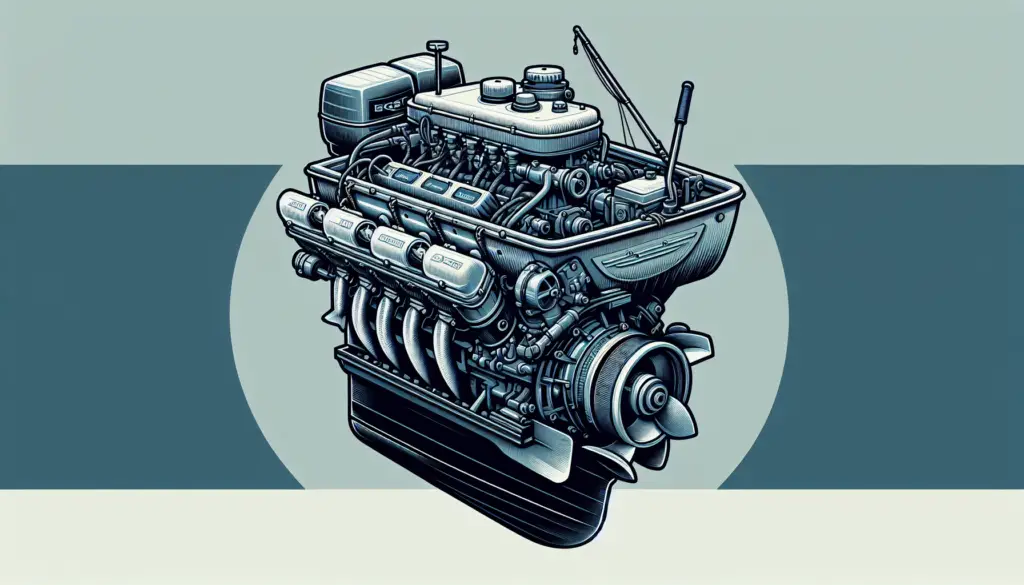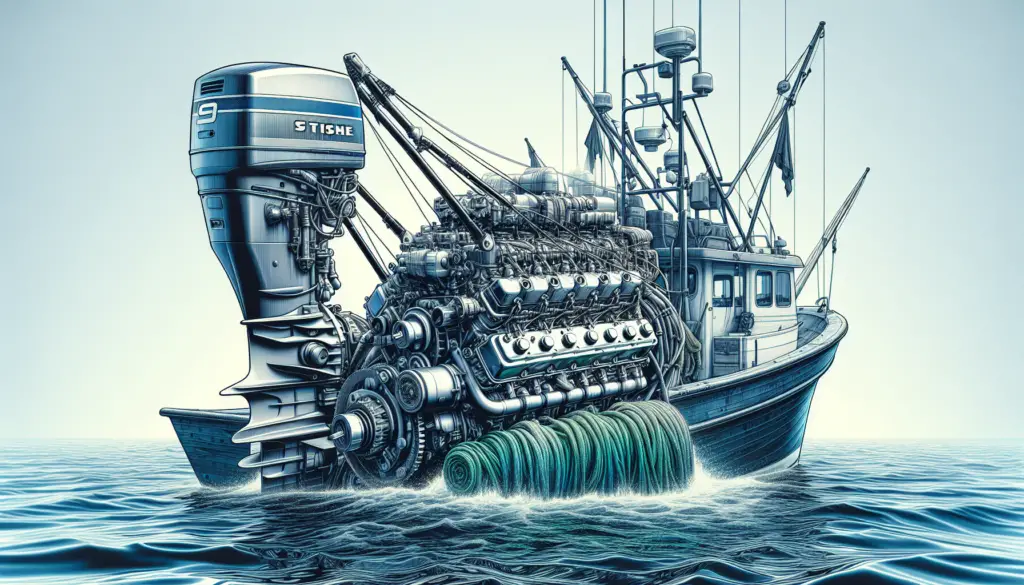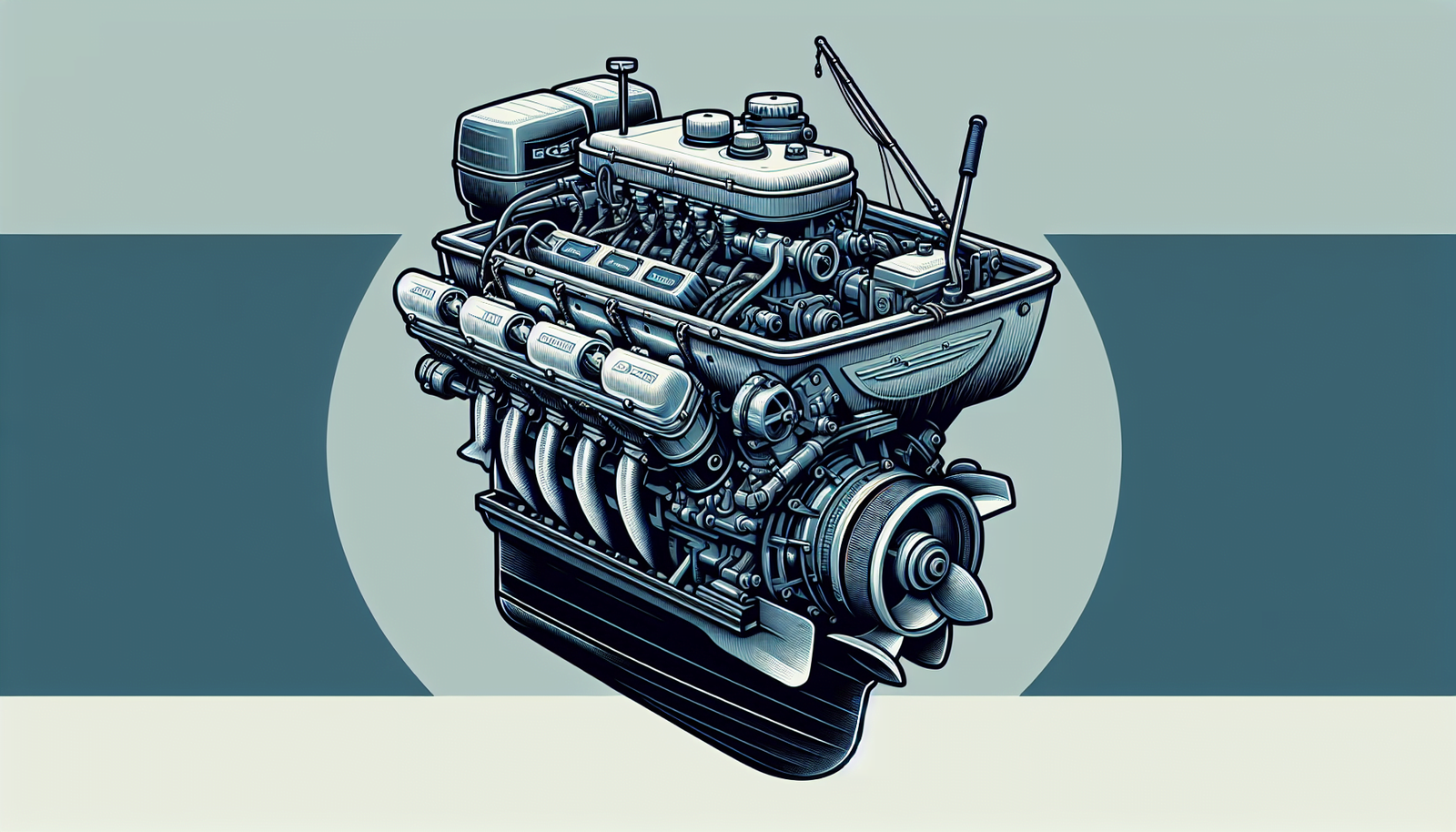If you’re considering buying a used boat engine for your fishing excursions, there are some important aspects to bear in mind. The condition, performance, and price of the engine are of paramount importance, and determining these aspects correctly can make or break your experience on the water. “Key Factors to Consider When Buying a Used Boat Engine for Fishing” is a comprehensive guide that explores these vital elements, offering you the insights you need to make an informed purchase.
Understanding the Types of Boat Engines
When choosing a used boat engine for fishing, the first factor to consider is the type of engine. Each engine type offers unique characteristics, and your specific needs will determine which is the best fit for you.
Outboard Engines
Outboard engines are the most common type of boat engine. These units are mounted on the stern of the boat and often serve as both the engine and the steering device. They are popular because they are relatively easy to install, remove and maintain. Outboard engines are versatile too; they are suitable for small boats used on calm water bodies and are also powerful enough for offshore fishing trips on larger boats.
Inboard Engines
In contrast, inboard engines are built inside the boat structure, usually at the center. They are directly connected to the boat’s propeller via a drive shaft. Inboard engines are known for their power, making them ideal for larger boats that require significant horsepower. They are also quieter than outboard engines, which could be an advantage when fishing as less noise may disturb the fish.
Sterndrive Engines
Sterndrive engines, also known as inboard-outdrive or I/O engines, unite the features of both outboard and inboard engines. They are essentially inboard engines that extend to the stern, providing better balance and superior handling. However, they involve complex installations and maintenance.
Jet Propulsion Engines
Jet Propulsion engines are less common in the fishing scene. Instead of a propeller, they use a jet of water for propulsion. These engines are powerful and provide rapid acceleration. They may also be safer as they do not have an exposed propeller. However, they are not as fuel-efficient as other types and require deeper waters for optimum use.
Evaluating the Engine’s Condition
A used boat engine’s condition greatly influences how well it will serve your fishing needs. It’s crucial that you thoroughly inspect each candidate before making your choice.
Physical Evaluation
Start by visually examining the engine. Look for signs of excessive wear and rust. Don’t forget to check for leaks and cracks. Physical signs of neglect, like a thick build-up of oil or dirt, can signal potential issues.
Performance Test
Conduct a performance test of the engine if possible. Listen to it running and pay attention to any unusual noises. An engine that runs smoothly without producing excessive smoke or overheating is usually a good sign.
Inspection from a Qualified Mechanic
Despite your best efforts, there are some issues that only a professional can spot. Hiring a qualified mechanic to inspect the engine before buying can save you from potential future headaches.
Hours Run Indicator
Most boat engines have an hours run meter which shows how long the engine has run. This can give you a glimpse into the engine’s potential lifespan.

Understanding Horsepower and Performance Needs
Before buying a used boat engine for fishing, you’ll also need to evaluate your performance needs.
Match Engine Horsepower to Boat Size
Generally, larger boats require more horsepower to move efficiently. However, overdoing it can waste fuel, while underpowering can lead to strain on the engine and slower speeds.
Different Fishing Needs Require Different Performance Levels
Certain types of fishing may require higher performance levels. Consider how and where you plan to fish. Inshore fishing might require less power compared to offshore or deep sea fishing.
Fuel Efficiency Considerations
Also, consider fuel efficiency. Larger engines tend to consume more fuel. While they might provide more power, they might not be the most economical choice.
Engine Age and Usage Impact
Where the engine is in its lifespan can heavily impact its performance and reliability. Engines like people, age and wear over time.
How Age Affects Engine Performance
Older engines may not perform as effectively as their newer counterparts. Improved technology and designs mean that newer models often perform better and provide improved fuel efficiency.
Understanding the Impact of Engine Usage
It’s not just about the engine’s age; how it’s been used and cared for also matters. An older engine that has been well maintained may outlast a newer engine that hasn’t seen service in some time.
Correlation Between Engine Life Expectancy and Usage
Generally, the more an engine is used, the shorter its lifespan. However, not using an engine or leaving it idle for extended periods also negatively affects the engine’s condition. Regular, but not excessive usage generally aids in engine longevity.

Maintenance History Check
Maintenance history provides a glimpse into how well an engine has been taken care of and what you need to potentially work on.
Importance of Regular Maintenance
Engines that are regularly serviced tend to be more reliable. Regular maintenance helps to identify and fix potential issues before they become significant problems.
Signs of Proper Engine Care
Things like clean components, regular oil changes, and a lack of major repairs signify good care.
Obtaining Maintenance Records
Before buying, ask the seller for the maintenance records. These provides an accurate picture of the engine’s history and how well it had been maintained.
Brand Reputation and Reliability
Considering the engine’s brand is also a vital part of decision-making.
Researching Reliable Engine Brands
Some brands are known for their reliability and durability. Be sure to research various engine brands and understand their reputation in the market.
Importance of User Reviews
User reviews provide insight into an engine model’s real-world performance and reliability. They can highlight potential issues and give you a better understanding of what to expect.
Availability of Spare Parts and Service
Sticking with well-known and respected brands often means better service support and availability of spare parts. This can be an essential factor, especially when it comes to potential future repairs.
Costs and Budget Considerations
Costs are an essential factor when choosing a used boat engine.
Comparing New vs Used Engine Prices
You’ll want to consider not only the initial cost of buying used but also how much a new engine would cost.
Understanding the Total Cost of Ownership
Beyond the initial purchase price, you should consider the total cost of ownership. This includes costs related to maintenance, repairs, and fuel.
Budgeting for Potential Repairs
Used boat engines often require more regular maintenance and are more likely to need repairs. It’s good to keep this in mind and budget accordingly.
Warranty and Service Support
Warranties and service support can offer peace of mind when purchasing a used engine.
Understanding Warranty Terms
Check if the engine comes with a warranty. Understanding the warranty terms, including what is covered and how long the coverage lasts, can help you avoid costly repairs in the future.
Availability of Extended Warranties
Some sellers or manufacturers provide the option to purchase extended warranties. While it means an added cost, this could be beneficial in the long run.
Importance of Adequate Service Support
Regardless of having a warranty or not, having access to knowledgeable and skilled service support is critical. When issues arise, you’ll want to be able to get assistance promptly.
Checking Compliance with Emissions Standards
Emissions standards are crucial in today’s world, and it is no different in the boating industry.
Understanding Emissions Regulations
Before purchasing a used engine, ensure you understand your local emissions laws. Some engines may not meet these standards, especially older models.
Ensuring the Engine Complies with Local Laws
Before finalizing your purchase, make sure that your chosen engine complies with these laws to avoid any potential legal issues.
Implications for Environmental Conservation
Choosing an engine that meets emissions standards isn’t just about legality. It’s also about preserving the environment where you enjoy fishing.
Making the Final Purchase Decision
Ultimately, purchasing a used boat engine involves several considerations.
Deciding on the Right Engine for Your Needs
After evaluating all the aspects mentioned earlier, you must determine which engine best suits your needs. It should satisfy your fishing requirements, be within your budget, and comply with local regulations.
Considerations for Safe and Legal Transportation of the Engine
Consider how you’ll transport your engine safely and legally to your location. This could involve additional costs or precautions.
Ensuring Proper Installation and Setup
Lastly, ensure that the engine will be installed correctly on your boat. The right setup is crucial for optimum performance and safety.
In conclusion, buying a used boat engine for fishing involves careful consideration and evaluation of several factors. Opt for an engine that fits your needs, is from a reliable brand, well-maintained, within your budget, and complies with local laws. With careful consideration and research, you can make an informed decision that enables an enjoyable fishing experience.


[…] you thinking about buying a used boat engine? This comprehensive buyer’s guide is designed specifically for you! It will arm you with the […]